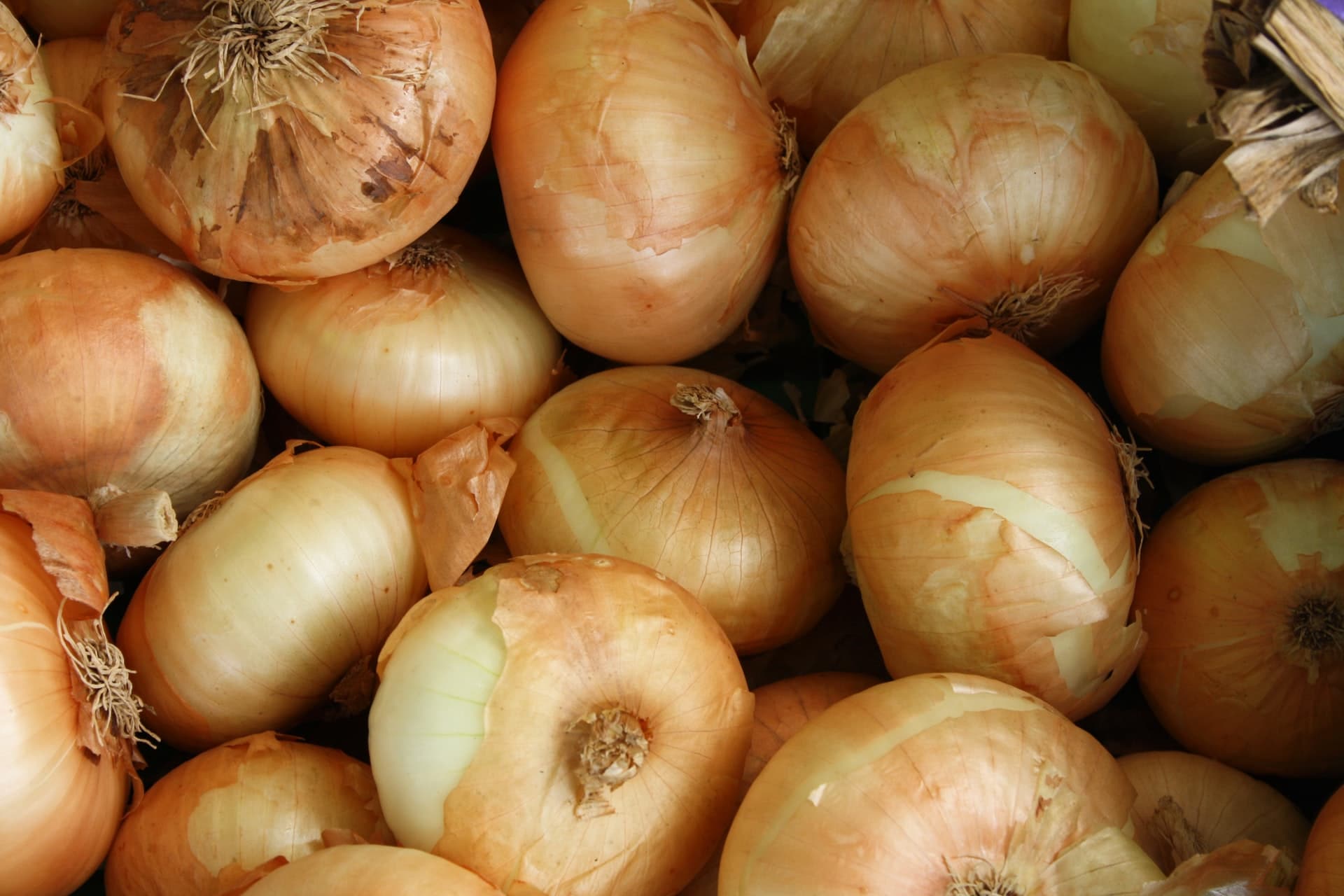Onions are just something you can’t live with if you are cooking at home, so it is normal for people to buy more onions than they need so they will always have fresh bulbs for use through the weeks, especially now that people are practicing social distancing and some countries are still in lockdown.
To avoid wastage, we are going to teach you the best ways of storing onions. Onions come in so many sizes, colors, and shapes, but there are general methods of storage that will work on all of them.
How to store onions in an apartment
If you want to know how to store onions for six months or more, you have come to the right place. The key to storing whole onions (whole bulb, uncut) is placing them in a cool, dark place that is not humid, hot, or moist. Onions thrive in storage when it’s cool, and the humidity is controlled just right. Light avoidance should be practiced, too, as this will prevent them from sprouting.
The National Onion Association also recommends that people should store their onions in a cool, dark place with ventilation. So if you are planning to store your onions in the basement, there has to be sufficient ventilation there because we are sure that you are also storing other fresh produce there, like potatoes. In an apartment, you can probably elevate your onions and place them in their box with proper ventilation holes, so they don’t absorb too much moisture, and they are not overexposed to light.
When temperatures rise and the humidity also naturally increases, onions are likely to be sprouting. One research showed that the ideal temperatures for storing onion are 40˚-50˚ Fahrenheit or 4˚-5˚ Celsius. Onions can maintain their basic characterizes the best at this temperature range.
Onions that are properly stored can last for six to eight months as whole bulbs. As for the storage container, we recommend using netted bags, boxes with holes, and even old pantyhose.
Old pantyhose might sound funny, but the material is perfect for wicking away moisture and protects the bulbs from pests, too. Another reason for cutting down the light exposure is that light usually translates to temperature increase, and that is something that you don’t need if you want to maintain your onions in pristine condition. This is how to preserve onions for months easily – you don’t need any special tricks for whole bulbs of onions. At most, you need to control the immediate environment of the fresh produce to discourage sprouting and to maintain the firmness of onions for later use.
Can you store onions in the refrigerator?
Contrary to what people commonly think, refrigerating onions damage them and cause them to turn to mush faster. If you have noticed, onions have this sort of papery think outer layer when you buy them from the supermarket. The reason for this is that after harvesting, onions are dried or cured to preserve them. The curing takes care of all the excess moisture in the bulbs, and this directly helps in keeping them firm and crisp for a longer period. However, this rule does not apply completely to onions that have already been peeled, sliced, or diced.
How to store onions after cutting
Peeled whole onions can last in the refrigerator for a maximum of fourteen days, while the sliced/diced ones can be refrigerated for a maximum of ten days. Freezing whole onions is not recommended as the ice crystals that will result from freezing will destroy the onion tissue.
The reason why unpeeled onions should be stored outside and not in the refrigerator is they absorb too much moisture quickly, which causes the onions to rot. This is something that we don’t want, so just avoid it at all costs. Placing onions in the pantry is better than freezing the whole bulbs in any situation.
For onions in different stages of processing, they can be stored long term in the freezer (for three months to six months) if you place the sliced or diced onions in airtight containers before placing in the freezer. Processed onions stored this way are adequate for dishes with sauces and casseroles, too. So you can store processed onions in the freezer, but not the whole bulbs as they won’t do as well. Frozen whole onions will likely become mushy and unusable when you remove them from the freezer.
What about cooked onions?
Cooked onions can outlast fresh onions easily because they are already cooked. Just place them in any container and freeze your cooked onions, and you should be good for at least three months. If you have to store your cooked onions for six months, there shouldn’t be a problem there.
Do you want to store shallots, too? Place them in a mesh bag, old pantyhose, bamboo steamer basket, or any other container that has adequate ventilation and just put them in a cool, dark place, away from moisture and humidity. If you store them right, shallots can last for 30 days easily alongside whole onion bulbs.
Unlike whole onion bulbs, shallots can be stored in the freezer for half a year. To do this, peel the shallots and separate the stems from the cloves. Place the shallots in an airtight container or a zip lock bag and then place the bags/containers in the freezer. Unlike whole onion bulbs, shallots will not take damage from being frozen. Scallions are different from shallots and should be stored differently. Wrap scallions in a damp towel and place them in the refrigerator if you plan to cook the scallions in a few days.
If you want an alternate method for storing onions, we recommend pickling them with vinegar, salt, sugar, and spices and then storing the pickling jar in the refrigerator. Pickled vegetables easily outlast fresh and cooked counterparts because the vinegar solution prevents bacteria from growing on the vegetable tissue.

